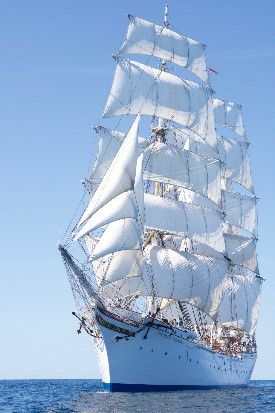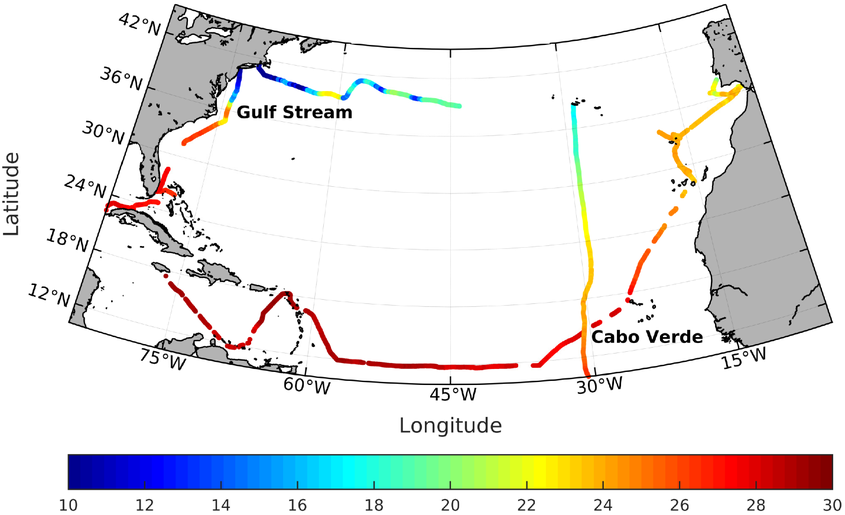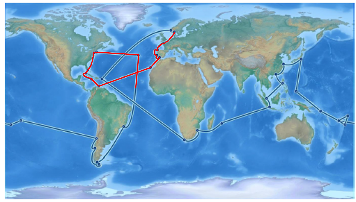IRSI joins Norwegian IMR in global ocean data sharing
The operation is led by the Norwegian Institute of Marine Research (IMR) and is part of the United Nations Decade of Ocean Sciences for Sustainable Development. As part of this labelling, the large sailing vessel (98m long) has been equipped with state-of-the-art ocean observation technology. FAIROD data management aims at a global assessment of the state of the oceans in order to address global change.
One of the objectives of the expedition is to raise awareness and education through the presentation of modern ocean research.

To this end, the Statsraad Lehmkuhl has been equipped with the most modern technology for measuring various ocean variables. Equipment installed under the ship's hull (Ferrybox) allows the temperature and salinity of the ocean to be measured automatically at one-minute intervals throughout the voyage.
Temperature data collected on the first leg of the One Ocean Expedition are now available in the Copernicus Marine Service Catalogue. The recovered data cover the period from the start of the expedition in Arendal, Norway (20 August 2021) to Valparaíso, Chile (29 April 2022).
The ferrybox system made it possible to obtain data on the water temperature throughout its crossing of the North Atlantic (see trajectory map below).
Several features are observed, most notably the Gulf Stream separation front where the temperature drops by 10 degrees Celsius in one degree of latitude. There is also a seasonal cooling to the west of the Cabo Verde Islands between the first and second passages.
Ifremer is involved in this project at different levels:
- The institute has joined the FAIROD project launched in the framework of "The Ocean Decade".
- IRSI is a key contributor to the Copernicus Marine Environmental Monitoring Service and all measurements made via the 3-mast are available there
- SISMER is the coordinator of the in situ Thematic Assembly Center which gathers about fifteen partners including the Norwegian IMR


